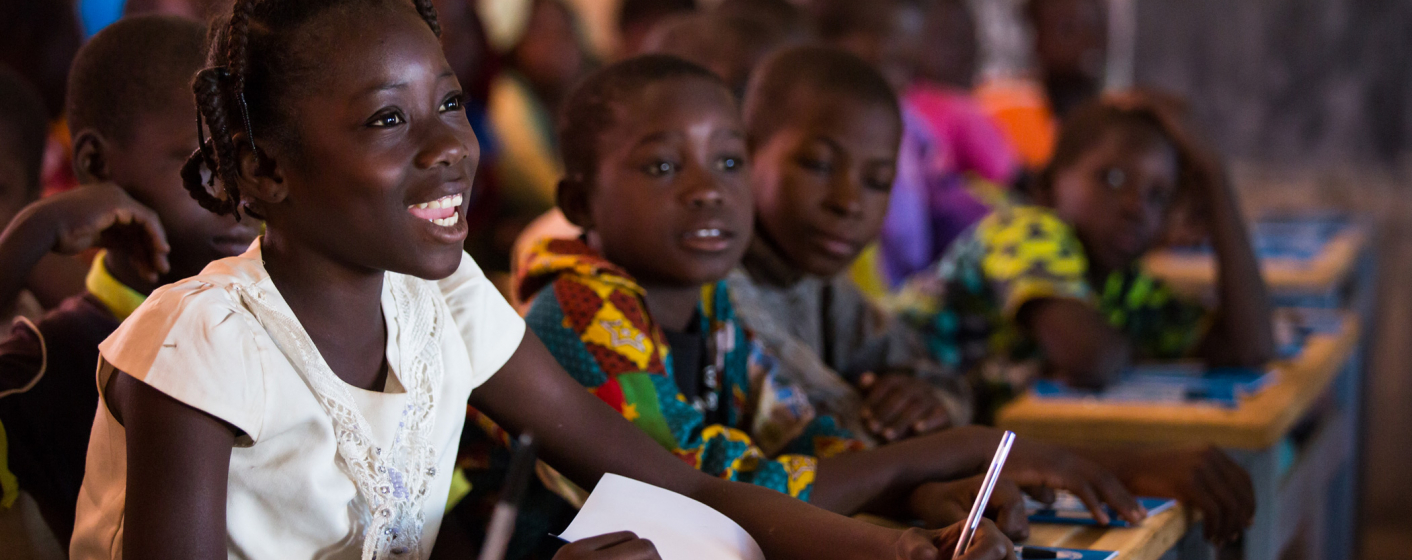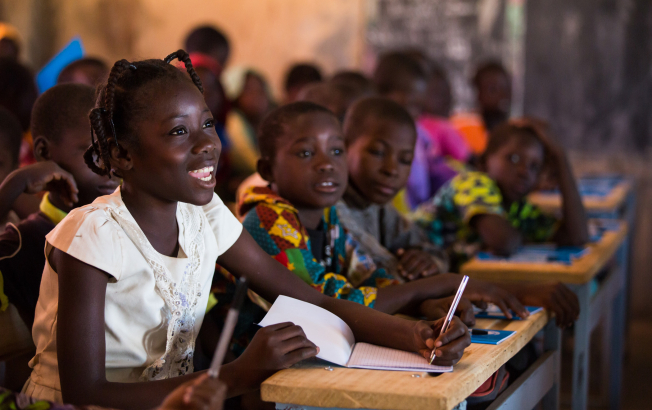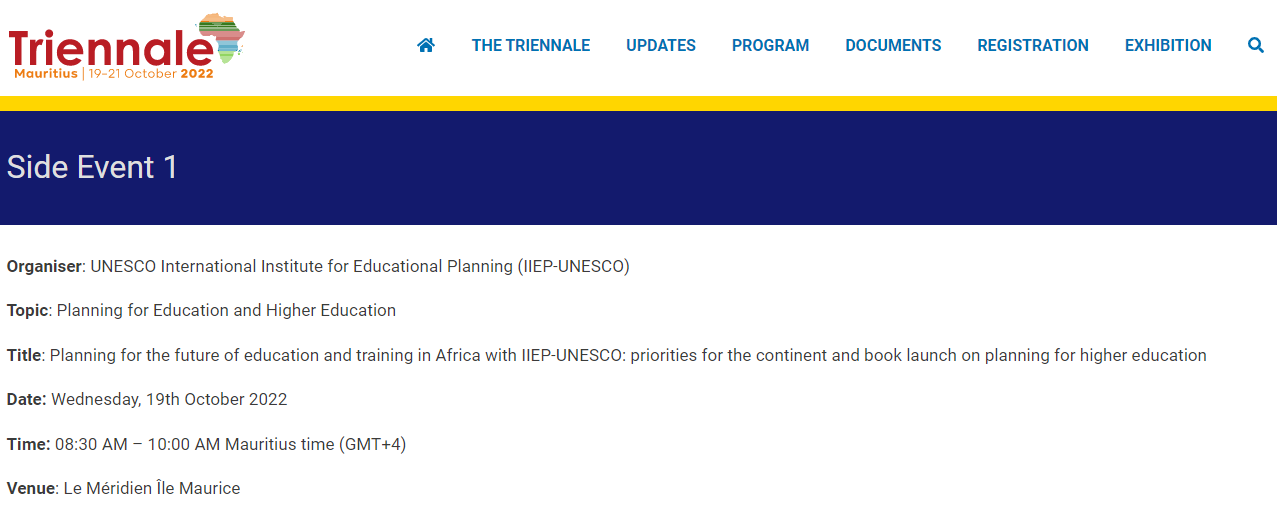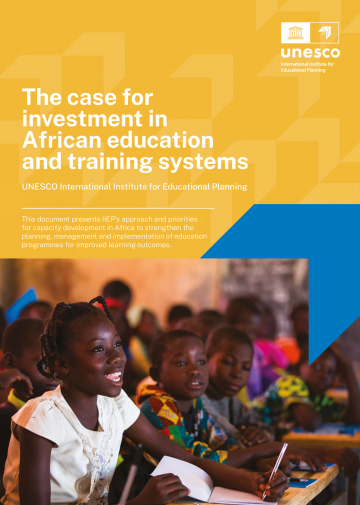Why invest with IIEP in education and training in Africa? Meet us at the ADEA 2022 Triennale
Africa’s educational systems face some of the toughest challenges of any world region but have the biggest capacity gap to address them. Through innovative approaches to educational planning and management IIEP-UNESCO is working to change that, with support from global partners and the commitment of countries.


During the ADEA 2022 Triennale on Education, one of Africa’s seminal high-level forums for political dialogue and sharing of knowledge, IIEP will reaffirm its commitment to the continent and present its approach and priorities for capacity development to strengthen planning, management, and the implementation of education programmes for improved learning outcomes and skills development across the continent.
Without strong capacity to plan and manage for better student learning outcomes and for youth skills, and increased attention to equity and gender, achieving the SDG4 target would be more of a fiction than a reality for most African countries.
Come and meet us at the ADEA Triennale during our side event on Wednesday 19th October at 8.30 am

Better management for improved learning
In sub-Saharan Africa, despite multiple reforms and investment efforts in education over the past 20 years, learning assessments carried out at all levels show that students are far from having acquired basic learning outcomes. In response, IIEP-UNESCO is supporting ministries of education across the continent to improve student learning, as a key partner in the global efforts to find promising solutions to overcome the learning crisis.
IIEP’s three core functions of technical cooperation, training, and knowledge mobilization and management focus on improving learning outcomes at the pre-primary, primary and secondary levels, and skills for employment at the secondary and post-secondary levels.
Through the Quality Management Programme, which has already been rolled out in eight African countries, IIEP works with local actors to track the quality of education delivery, diagnose challenges, propose solutions, and support implementation for a sustainable transformation.
Quality Management Programme
Original in its approach, the programme uncovers obstacles to improved learning outcomes through immersion of IIEP teams with local actors to:
- Diagnose challenges
- Propose solutions
-Support implementation of recommendations for sustainable change.
The programme has been rolled out in eight countries, namely: Burkina Faso, Burundi, Cameroon, Côte d’Ivoire, Madagascar, Niger, Senegal, and Togo.
Skills and flexible learning pathways
Currently, the mechanisms and institutions for African youth to acquire employable skills are insufficient and do not allow for a smooth transition from school to work.
Youth make up 60 percent of the continent’s unemployed population, and nearly a third aged between 15 and 35 are unemployed. A further 19 percent are inactive in the labour market.
To prioritize flexible and responsive education pathways for greater workforce preparedness in both the formal and informal markets, the Institute’s technical support and training provide tools for integrating labour market data into the planning and management of education.
That includes understanding the issues and challenges surrounding Technical and Vocational Education, with topics of equity, gender equality, inclusion and resilience mainstreamed into training content.
Through partnership frameworks involving public actors, private economic actors and civil society, mechanisms are designed for planning and managing skills development systems to become sufficiently responsive to rapidly changing labour market needs.
Cross-cutting to these two priorities, IIEP also assists countries in the design and implementation of policy reforms to address gender disparities for impact at scale on girls’ education.
Gender at the Centre Initiative
Targeting eight countries in sub-Saharan Africa, the Gender at the Centre Initiative (GCI) was launched in 2019 as part of the G7 Summit. The IIEP Africa Office provides technical leadership to this international consortium aimed at building the capabilities of education system stakeholders and developing resources for gender equality with and through education.
60 years expertise serving education and training systems
IIEP is one of the leading education and training-focused organizations in Africa offering:
- Unrivalled technical expertise in analysis, planning and management
- Effective training rooted in practical experience to enforce capacity-development of education sector actors
- Long-standing relationships and engagement with education and training ministries
- Rigorous knowledge mobilization and management
Primary school enrollment in Africa has reached its highest levels ever. However, we cannot rest on our laurels as nine out of ten children cannot read with basic comprehension by the age of 10. IIEP-UNESCO is redoubling its efforts today, across the continent, and is seeking new partnerships, to ensure not only access to education, but lifelong learning for all.
How can you support our work?
IIEP understands the contexts and needs of different countries and has a proven track record in capacity development for improved education and training planning and management. This case for investment serves as a call to action towards realizing quality and equitable education as a human right and common good in Africa.
IIEP’s valued donors can support:
- Core programmes that allow IIEP to adapt to specific contexts in assisting the continent’s education systems. Non-earmarked funding also allows IIEP to work across the full scope of its priorities in Africa for sustainable change in education.
- Country-level programmes that allows for more targeted use of aid in programmes codesigned with funders and in-country partners to empower local education officials.
- Multi-year regional programmes for thematic activities that can span multiple countries to implement educational strategies across borders.
The Institute has for six decades assisted countries with how to design, plan, and improve education systems, while the regional office in Dakar has for 20 years provided localized expertise and support.
IIEP’s global offices provide Dakar with the advantage of potentially offering training in multiple languages to better serve Spanish and Portuguese speaking countries in Africa.
In just the past four years, IIEP has undertaken 49 technical cooperation projects in 26 countries spanning Francophone, Anglophone, and Lusophone Africa. Looking forward to 2030 and beyond, IIEP remains committed to the continent and the transformation of education for a more equitable, sustainable, and brighter for future all.

